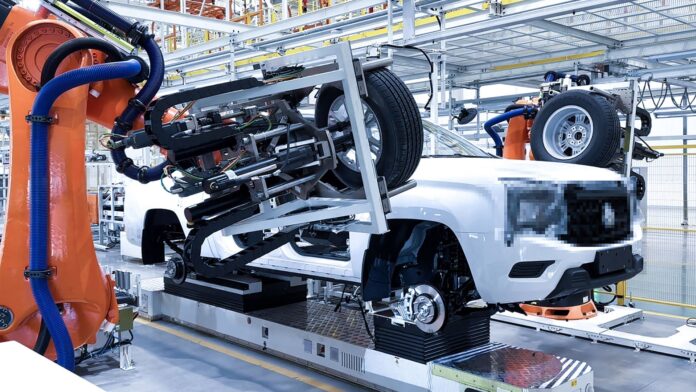In an international manufacturing arena where automation has become a necessity rather than a luxury, Beijing-based
Mech-Mind Robotics ( ) is quietly gaining ground–but with confidence.
Shao Tianlan founded the company in 2016 on the basis of a simple but deceptively profound insight: humans are able to follow instructions almost instantly while programming industrial robots can take up to a week. Shao Tianlan, a graduate of Tsinghua University, and the Technical University of Munich saw this mismatch while leading a group of graduate researchers. “Our team of seven to eight graduate students spent a week programing a robot to do a simple task,” said Shao. Mech-Mind was formed to fill this gap: make machines that can plan and see like humans.
Fast-forward to 2024 and Mech-Mind technology is reportedly in use in more than 50 countries with over 15,000 installations around the world. Its artificially intelligent systems, ranging from robotic vision toolkits to deep learning tools, are used for tasks like bin picking, inspection, and welding in the automotive and logistics sectors.
Mech-Mind was founded in March.
Tokyo, Japan has opened a new robots lab . The 1,000-square meter facility includes a training and exhibition area of 400 square meters. The lab is a sign of a commitment to Japan, a strategic market. Shao revealed that he spent over two years studying Japanese and had rehearsed the speech 100 times before he delivered it fluently during the lab’s grand opening.
Mech-Mind also has teams in South Korea and Germany. These local offices are responsible for sales, engineering and training while the headquarters in China ensures each product is ready to enter new markets. “We avoid scattershot growth,” said Xu Tingting. Vice president of business and Marketing at Mech-Mind.
When the company chooses a new market it only introduces products which have been thoroughly tested in China. “We always start by doing what we do best,” Xu explained. “A product that is mature domestically carries less risk abroad, where the after-sales logistical process is more complex.” For example, Mech-Mind precision measurement tools were introduced first in South Korea, aligning well with local requirements for accurate inspection workflows.
Mech-Mind works with system integrators in each region to support localization. This approach maximizes local expertise, minimizes conflicts in distribution, and allows for faster scaling. Local partners are responsible for deployment and promotion while Mech-Mind focuses primarily on product development and customer support.
The core of Mech-Mind’s platform is a set of interoperable software tools. Mech-Eye cameras capture high-precision depth data. Mech-Vision analyzes the input using complex image analysis. Mech-DLK offers deep learning capabilities that are tailored to specific industrial applications. Mech-Viz is arguably the most accessible part, allowing users to program robots using a graphical user interface, without having to write code.
Mech-Mind will add Mech-MSR in 2024 to its lineup. This 3D measurement software runs on the company’s laser profilers and is designed for quality control. It targets high precision industries like semiconductors, electric cars, and photovoltaics.
The principle that guides the company is repeatability, not reinvention. Shao said, “The market doesn’t represent a single USD one trillion opportunity.” “It is 10,000 markets, each worth RMB 100,000,000.” You win by creating products that scale.
Mech-Mind’s marketing efforts are also localized. The collateral is rewritten, not just translated. YouTube videos are optimized to regional audiences by taking into consideration SEO strategies and viewing patterns, such as a preference of short-form content. “In every video, the core message appears in the first 30 second,” Xu said.
With over USD 200 million from investors such as IDG Capital Intel and Meituan Mech-Mind explores new product lines for consumer and service use. It is also expanding the network of training centres to better support its global partners.
The company’s R&D effort includes a collaboration with University of Hamburg in order to explore multimodal AI which integrates visual verbal and schematic data. The goal is for robots to be able to understand commands, not just execute them. This collaboration has produced Mech-GPT – a large-scale robot model that is designed to improve robotic understanding of complex visual inputs and natural language.
From a small student project to a global player in automation–that is the arc Mech Mind has traveled on its way to a future when robots will function more as perceptive partners than tools. Standardized. Scalable. They are also intelligent enough to make their own decisions.





